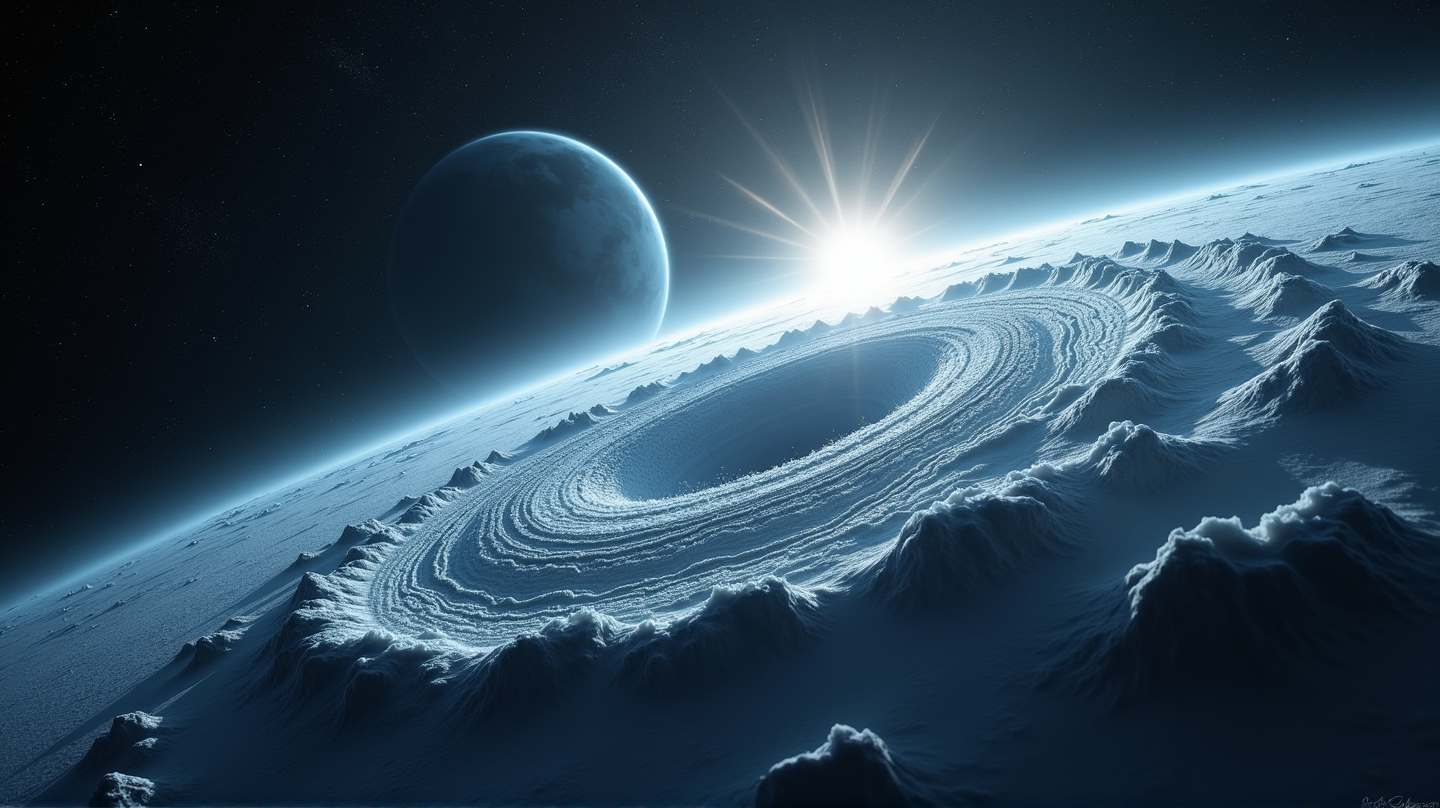Saturn's Enceladus: A Promising Candidate in the Search for Extraterrestrial Life
Could Enceladus, Saturn's icy moon, harbor life? Promising signs from Cassini data suggest it might hold the answers the cosmos seeks.

A Shift from Mars to the Mysteries of Enceladus
With recent discoveries on Mars hinting at possible signs of life, attention is shifting to another celestial body that might reveal more about extraterrestrial existence. According to Space.com, traces of life-supporting molecules have been discovered on Saturn’s enigmatic moon, Enceladus, courtesy of the famed Cassini mission.
Cassini’s Revelations: A Closer Look at Organic Clues
The Cassini probe, during its illuminating journey, spearheaded the discovery of organic molecules such as amino acid precursors through the enigmatic ‘tiger stripes’ — fissures on Enceladus’s icy surface. These molecules hint at the moon’s potential to harbor life beneath its icy exterior. However, radiation may alter these molecules, which generates debates on the actual presence of life-originating elements.
A Mission to Revolutionize Our Cosmic Understanding
While the European Space Agency has laid down plans for an orbiter and lander mission by 2042, the timeframe dampens immediate prospects. NASA’s innovative Enceladus Orbilander project could edge forward with its technology, launching in 2038 if embraced and funded.
Through cutting-edge engagements like the SpaceX Starship and developments in direct fusion drives from Princeton Plasma Physics Laboratory, Enceladus could soon be within our grasp. These would reduce the arduous journey to a mere two years instead of the typical seven.
Exploring Further into the Cosmos: Europa and Titan
The quest for life extends to other celestial bodies, too. Titan, another of Saturn’s moons, also promises rich exploration opportunities alongside Jupiter’s Europa, both showing signs of warm, life-sustaining oceans beneath their frosty covers.
Weighing the Pros and Cons of Icy Moon Exploration
Compared to Mars, Enceladus offers a less contested space for exploration because establishing human habitats isn’t currently anticipated there. This leaves scientists the freedom to dive into exploration, free from contamination concerns posed by human presence.
What’s Next for Cosmic Exploration?
The US, with its technological prowess and innovative spirit, could accelerate this fascinating journey, unlocking secrets that Enceladus might hold. As scientists and engineers contemplate these cosmic cradles of life, Enceladus shines bright on the radar, not as a distant aspiration but as a tangible exploration frontier. Finding alien life might not just be about surface fossils of Mars but rather venturing beneath icy realms of moons like Enceladus. According to The Hill, the intriguing possibilities echo throughout astrophysics and beyond.
As humanity stands on the brink of life-discovering missions, Enceladus is a reminder of the cosmic wonders awaiting our understanding and exploration.

